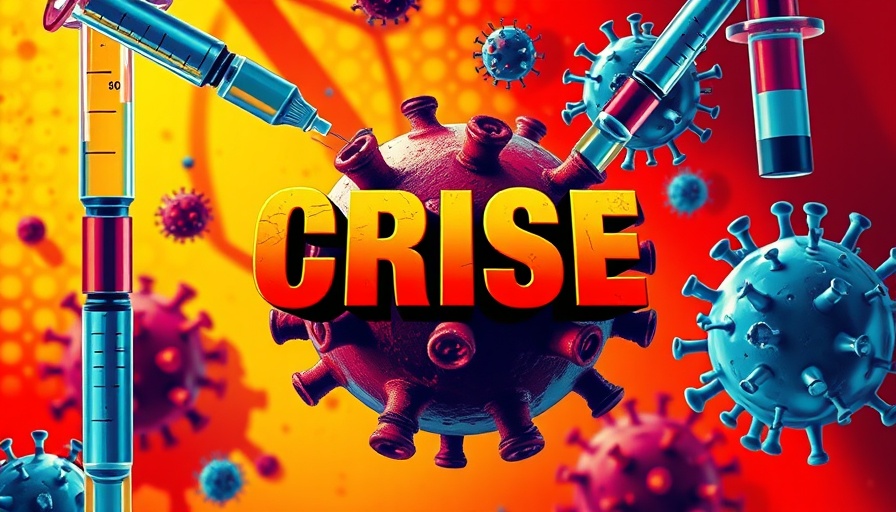
Understanding the Legacy of the Cancer-Prevention Diet
In the fight against rising cancer rates, Michio Kushi’s philosophy of the Cancer-Prevention Diet stands out as a beacon of hope. Over the past 45 years, the lifetime risk of developing cancer has alarmingly increased from one in eight to nearly one in three. Kushi's approach advocates for a nutritional return to traditional diets, emphasizing that what we eat plays a pivotal role in our health. The foundation of this approach is the belief that "food is medicine."
Why Traditional Diets Matter
The shift towards a highly processed diet, which is prevalent today, has coincided with the upsurge in chronic diseases, including cancer. Kushi’s macrobiotic diet, rich in whole grains, vegetables, beans, and sea vegetables, offers a stark contrast. Historical accounts indicate that traditional societies enjoyed minimal cancer rates, thriving on diets consisting primarily of unprocessed foods. As native communities adopted Western dietary habits, cancer instances skyrocketed, revealing the catastrophic health impact of refined sugars, processed foods, and excessive animal products.
The Senate Report: A Turning Point for Nutritional Awareness
Notably, the 1976 Senate Select Committee on Nutrition and Human Needs released a report linking improper nutrition with cancer. This pivotal document recommended diets abundant in whole grains, vegetables, and fruits, mirroring Kushi's macrobiotic teachings. As we reflect on this historical moment, it serves as a reminder of the dietary choices that are both endorsed by science and traditional wisdom.
The Holistic Approach: More Than Just Diet
Kushi’s principles extend beyond food; they encapsulate a balanced lifestyle. His macrobiotic practice encourages physical activity, mental wellness techniques such as meditation, and the power of positive thinking. This comprehensive view promotes not just a healthy diet but a full transformation of one’s life. Kushi’s teachings advocate for empowering individuals to harness their body’s self-healing capabilities through conscious choices.
Inspiring Success Stories from the Macrobiotic Community
The book, The Cancer-Prevention Diet: Michio Kushi’s Nutritional Blueprint for the Prevention and Relief of Disease, co-authored by Kushi and Alex Jack, presents stirring success stories from individuals who have embraced this lifestyle. These narratives serve as motivation, demonstrating real-life examples of overcoming health challenges through dietary commitment and lifestyle changes. Such shared experiences illustrate not just resilience but the very real impact of proper nutrition on health outcomes.
How This Diet Shapes Future Health Trends
As modern health crises continue to emerge, Kushi’s message grows ever more relevant. With rising rates of diseases linked to diet, such as diabetes and heart conditions, the return to whole, unprocessed foods, as advocated by this diet, becomes increasingly critical. Future health trends will likely involve a stronger emphasis on nutrition, preventive practices, and holistic lifestyles over simply treating illnesses.
Practical Tips to Embrace the Cancer-Prevention Diet
To integrate the principles of Kushi’s teachings into everyday life, adults can take actionable steps towards healthier eating. Here are some practical insights: 8- Incorporate more whole grains into meals, such as brown rice and quinoa. 8- Aim for a colorful plate filled with various vegetables, focusing on seasonal and local produce. 8- Substitute processed snacks with wholesome options like nuts, fruits, and homemade dishes that align with macrobiotic principles. These small changes can collectively lead to significant health improvements.
As the relevance of Kushi’s work continues to resonate, it encourages us all to reflect on our dietary choices and their influence on our long-term health. The call is clear: shift towards a diet enriched with nutrition, and embrace the holistic lifestyle that accompanies it. Let us take actionable steps today to secure a healthier life tomorrow.
 Add Row
Add Row  Add
Add 




 Add Row
Add Row  Add
Add 

Write A Comment